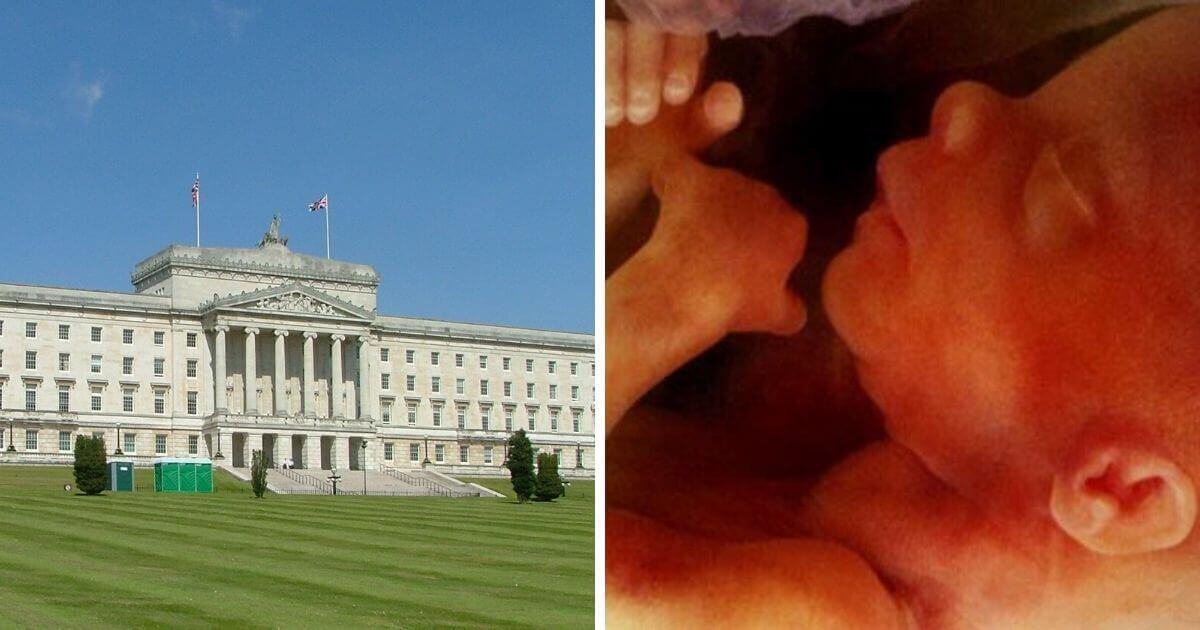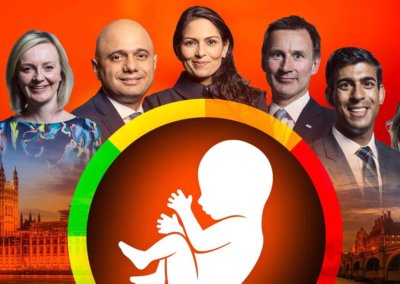Figures released today by the Northern Ireland Department of Health show that there were eight abortions in Health and Social Care Trust hospitals in Northern Ireland from 1 April 2018 to 31 March 2019, four less than in 2017/18.
This could be the last year that so few abortions take place in Northern Ireland. Although some women do travel to England and Wales for abortions from Northern Ireland when these abortions are taken into account, the abortion rate among Northern Ireland residents is far below that of England and Wales, and one of the lowest in the world.
This is reflected in a robust statistical analysis, verified by the Advertising Standards Authority, which shows 100,000 people in Northern Ireland are alive today because Northern Ireland did not accept the same abortion law that was introduced throughout the rest of the United Kingdom in 1967.
The current Conservative Government are legally required, by the Northern Ireland (Executive Formation etc) Act 2019, to introduce a limited abortion framework in the province.
The Government has launched a consultation on a proposed abortion framework for Northern Ireland which goes far beyond what the Government is required to do by the Northern Ireland (Executive Formation etc) Act 2019.
The proposed framework drops many of the current legal safeguards provided by the Abortion Act in England and Wales. The proposals open up abortion provision to any healthcare professional, which could include pharmacists, nurses, midwives, healthcare assistants, art therapists and dieticians. It also drops the requirement that two doctors sign off on an abortion.
The proposal includes virtually no legal limit on the locations on where abortions can take place, potentially allowing for the home use of both abortion pills along with abortion provision in pharmacies, GPs surgeries, school nurse clinics, mobile abortion clinics and ‘telemed’ abortions.
In practice, abortion on demand would be available to either 22 or 24 weeks under mental health grounds. Abortion without certification would be available to either 12 or 14 weeks. This would allow sex-selective abortions to be available on-demand through this period with no specific provision banning sex-selective abortion through 22/24 weeks.
The proposal would also see abortion for disabilities, including cleft lip, club foot and Down’s syndrome introduced to Northern Ireland, and possibly available right through to birth.
In England and Wales – where abortion is available up until birth if a baby has a disability – people with disabilities are unjustly and disproportionately targeted by abortion legislation.
The latest available figures show that 90% of children diagnosed with Down’s syndrome before birth are aborted in England and Wales.
Northern Ireland has a very different approach. Disability-selective abortion for Down’s syndrome is not permitted and there is a culture of welcoming and supporting people with this disability rather than screening them out.
This is reflected directly in the latest figures (2016) from the Department of Health in Northern Ireland, which show that while there were 52 children born with Down’s syndrome, in the same year, only 1 child from Northern Ireland with Down’s syndrome was aborted in England and Wales.
This very large discriminatory change was highlighted in a speech by disabled peer Lord Shinkwin in the House of Lords when he was speaking against the proposed changes.
A spokesperson for Right To Life UK Catherine Robinson said:
“Sadly, this could be the last year that so few abortions take place in Northern Ireland. Although some women do travel to England and Wales for abortions from Northern Ireland, when these are taken into account, the abortion rate among Northern Ireland residents is far below that of England and Wales, and one of the lowest in the world.
This is reflected in a robust statistical analysis, verified by the Advertising Standards Authority which shows 100,000 people in Northern Ireland are alive today because Northern Ireland did not accept the same abortion law that was introduced into Britain in 1967.
Now that the Northern Ireland Assembly has been restored, it is vital that devolution is respected and the decision around this important issue are made by the elected representatives of the Northern Irish people.
The Government is required by Northern Ireland (Executive Formation etc) Act 2019 to introduce a limited abortion framework to Northern Ireland on March 31st. For the Conservative Government to go beyond what is strictly necessary to comply with the Northern Ireland (Executive Formation) Act 2019, after it has repeatedly stated that it wishes to respect the devolution settlement and the people of Northern Ireland, is unacceptable and unnecessary.
This proposed abortion framework is a blatant attempt by the Government to further undermine the will of the people of Northern Ireland. It adds insult to injury after Westminster voted to impose new abortion laws on Northern Ireland and will likely lead to an even larger increase in the number of lives lost to abortion.”












